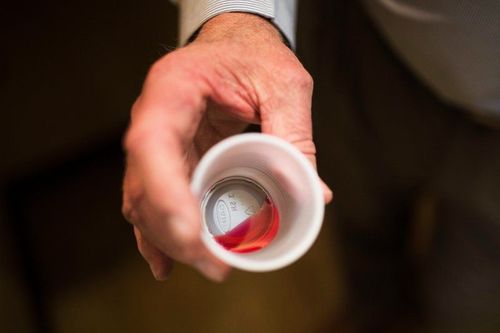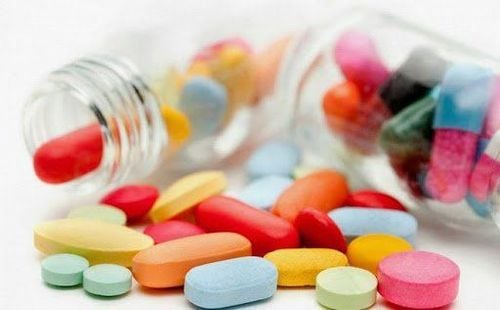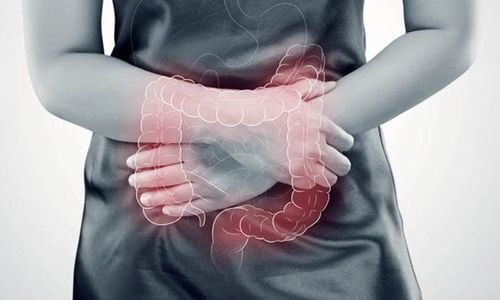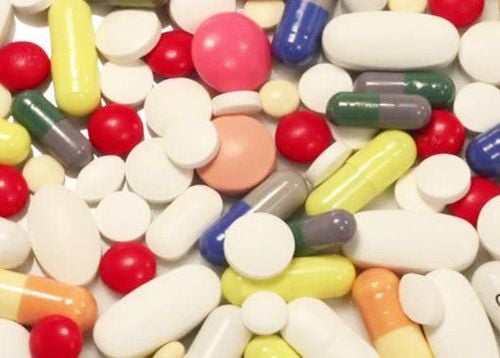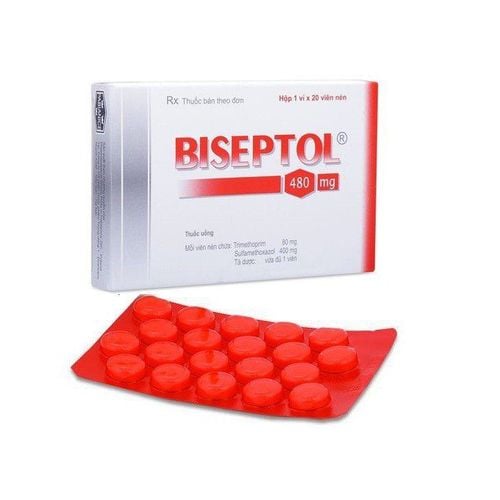This is an automatically translated article.
E.Coli bacteria can cause infection or diarrhea when entering the body. However, the use of antibiotics in the treatment of bacteria needs to adhere to the correct principles to avoid antibiotic resistance. Because there can be antibiotic resistance especially those of the intestinal bacteria E.Coli.1. E.Coli bacteria and causes of E.Coli infection
E.Coli belongs to the group of gram-negative bacteria, capable of proliferating in warm-blooded animals. Most E. coli bacteria are capable of causing transient and temporary diarrhea. However, it can also lead to complications such as intestinal infections, fever and abdominal pain, or meningitis or urinary tract infections.
Cases of E.coli infection can be treated at home, especially for adults, which can quickly heal and recover within a few weeks. However, with more sensitive cases such as the elderly, pregnant women, children ... or people with diseases with weak immune systems, it can be very dangerous to get E.coli because it has the potential kidney failure and seriously affect the health of the patient.
Causes of E.Coli infection: During the process of preliminary processing and food processing, food safety is not guaranteed such as:
Before cooking, eating and after going to the toilet, do not wash your hands or wash your hands. poorly. Using foods that are stale or spoiled Eat raw seafood without ensuring food safety. Eat foods that are only partially processed and not cooked, such as rare beef... Use utensils for raw and cooked foods Use unpasteurized milk Prepare food for livestock and poultry. Incubation. Contaminated water source but still used in processing, eating, bathing... Contagion from infected person to healthy person: E.coli bacteria can be transmitted from one person to another if you do not wash your hands thoroughly after when going to the bathroom and then touching other people or shared objects. E.coli infection from animals such as goats, cows, sheep... are intermediates that can infect people when working or in contact with them.
2. Diseases that can be encountered when infected with E. coli . bacteria
When infected with E. coli bacteria, the patient can have conditions such as: urinary tract infection, intestinal infection, invasive infection, infection in other organs... The most common disease E. coli is a urinary tract infection and usually presents as an infection that ascends from the perineum through the urethra. Furthermore, E.coli can cause prostatitis and other pelvic inflammatory diseases.
Some strains of E.coli can cause intestinal infections and signs of diarrhea :
E.coli infection causes intestinal bleeding: With these strains the bacteria can produce some cytotoxic substances , neurotoxins, and enterotoxins cause bloody diarrhea in patients, leading to the development of hemolytic uremic syndrome. These strains are commonly found in undercooked beef foods. E. coli infection causes enterotoxins with strains that cause watery diarrhea especially in infants and travelers. Invasive E.coli infection can cause infectious diarrhea E.coli infection causes intestinal adhesions causing persistent diarrhea in AIDS patients and children living in tropical areas. 3. Use of E.coli specific drug Treatment of E.coli infection will initially apply according to local epidemiological experience and the patient's infection status, possibly mild infection such as infection. bladder, urinary tract infections. Next, E.coli will be treated based on the antibiotic chart. However, there are quite a few strains of E. coli that are multi-resistant to ampicillin and tetracycline, so treating E. coli requires the use of a variety of antibiotics, which may include piperacillin, cephalosporins, aminoglycosides, trimethoprim and fluoroquinolones. .. In cases where pus-filled foci appear, it is necessary to perform surgery to remove pus, drain pus, and remove necrotic organs...
In addition to E.coli resistant to ampicillin and tetracycline, it has become increasingly resistant to TMP/SMX and fluoroquinolones. In addition, the emergence of multi-resistant strains that produce broad-spectrum beta-lactamases is also an important cause of urinary tract infections and bacteremia in the community.
E.coli also contains resistance genes encoding Ampc beta lactamase, serine carbapenemases, metallo carbapenemases. The drugs tetracycline, ceidercol injected as killers into macrophages are also active against hydrolytic strains of ESBL beta lactamases.
However, when using E.coli drugs with antibiotics, it should be noted:
Check the patient's drug resistance before using as well as the dose and effect of antibiotics on the type of bacteria. E. coli. The purpose of this process is to help select the most appropriate and most effective antibiotic for treatment. Moreover, when the results of this process are available, priority should be given to the use of narrow-spectrum antibiotics in the treatment of E.coli. In order to limit the drug resistance of E.coli at the beginning of the outpatient treatment period, broad-spectrum antibiotics with strong effects such as levofloxacin, ciprofloxacin, etc., should not be used when using antibiotics. In the treatment of E.coli, it is necessary to specify the use of antibiotics according to science instead of prescribing broad-spectrum or high-cost antibiotics... Moreover, it is necessary to consider old antibiotics that have been prepared in advance. that's a very long time. Because these drugs can be effective and affordable. For more than a decade, antibiotics have not been invented much, but the old ones are still used normally. Therefore, in order to optimize as well as minimize the current widespread antibiotic resistance, the rational prescribing of antibiotics, protecting the effectiveness of drugs for humans, plays a particularly important role in combating this situation. Antibiotic resistance is quite common nowadays.
When using antibiotics with E.coli bacteria, it is necessary to apply the following ways to improve treatment efficiency:
Patients need to be rehydrated and electrolytes as soon as possible when using the treatment method E.coli Patients may experience symptoms of anemia, at this time, it is necessary to appoint intravenous fluids or blood transfusions if necessary. If the patient has kidney problems, hemodialysis is required. The purpose is to help remove toxic substances and residues present in the patient's blood. Usually, patients infected with E coli or have E. coli infiltrate the body can be able to recover without the use of drugs for a period of 5 to 10 days. But if using E.coli to treat leprosy, the drug will make the body able to reabsorb the toxins secreted by E.coli, thus increasing the risk of kidney and blood-related complications. drug resistance of E. coli bacteria. Therefore, when using E.coli drugs for patients, it is necessary to perform thorough diagnostic tests to avoid affecting the patient during treatment.
Please dial HOTLINE for more information or register for an appointment HERE. Download MyVinmec app to make appointments faster and to manage your bookings easily.





